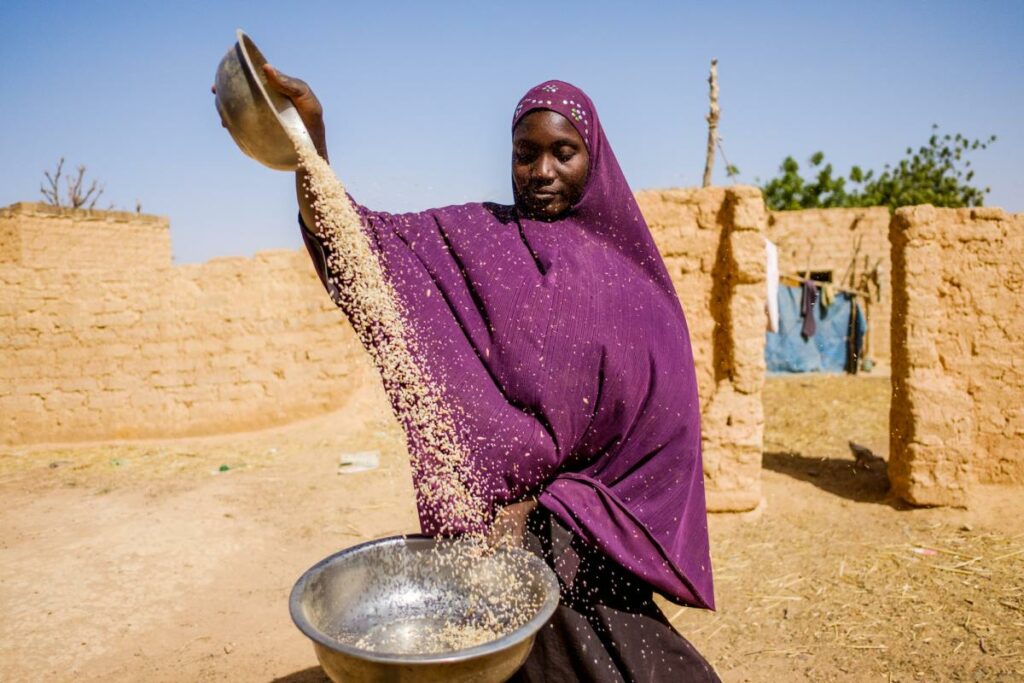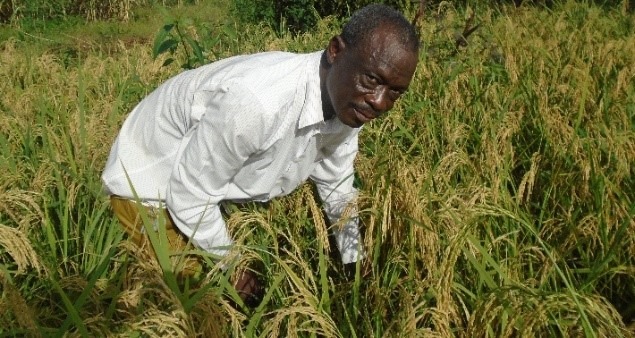Trias celebrates World Food Day
As October 16 marks World Food Day, Trias wants to draw attention to the many farmers worldwide who provide us with food every day. So that they can continue to do what they love.
Worldwide, enormous efforts have been made in recent decades to provide food for the growing world population. But whether that will continue to succeed in the future remains to be seen. Especially as climate change is increasingly profoundly disrupting food production. For example, it already looks like rising temperatures are likely to reduce global grain production. And the corona pandemic, increasing rural flight, rising fertilizer prices and the war in Ukraine have not improved the situation either. Hence, it is crucial that the farmers who are there can continue to do their jobs to the best of their ability. And that’s where Trias is only too happy to help.

Rice producers joining hands
That’s why in Burkina Faso, for example, we support the rice cooperative UPPRS, or l’Union Provinciale des Producteurs de Riz du Sanmatenga. That organization has some 6,000 members and operates in the Sahel part of the country, a region that struggles with little water and recurring periods of severe drought. The rising number of terrorist attacks in recent years and the inflation of grain prices and agricultural equipment have also not made life any easier. Hence, rice producers benefit greatly from joining hands and working together through a cooperative. This way, they already counter problems such as lack of capital and knowledge to a large extent and find new markets more easily. Trias has been working with UPPRS since 2014 to ensure, among other things, that the organization functions even better, that the production of its members improves and that women and young people are more involved.
Lassane Marc Ouedrago is one of the farmers affiliated with UPPRS. When he started farming on the Louda plain in 1985, he produced about 2.5 tons of rice per hectare. But that was not nearly enough to provide enough food for his family, let alone support them. Moreover, he noticed that the quality of his farmland was deteriorating year after year. Fortunately, that changed completely when he joined Louda’s local rice cooperative, which is also a member of UPPRS, in 2014. That way, he was able to attend some of Trias’ trainings.
Rice production almost doubled
“Thanks to Trias’ support, I have learned a lot of new production techniques and skills that are immensely useful in the field. As a result, my rice production has almost doubled in a few years to 4.5 tons per hectare. And that’s on the same farmland as before! Now I can not only feed my family enough, but also resell much of that rice.”
Moreover, this allows Lassanne’s children to go to school in the meantime, and he never has to worry when one of them needs to see a doctor. Today, he coaches many other farmers from the cooperative to ensure that their rice production also improves. A positive movement that revitalizes an entire region has thus begun.
